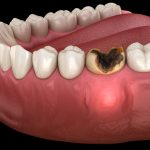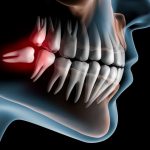Discover the Benefits of Regular Teeth Cleaning: How Often Should You Schedule Your Appointments?
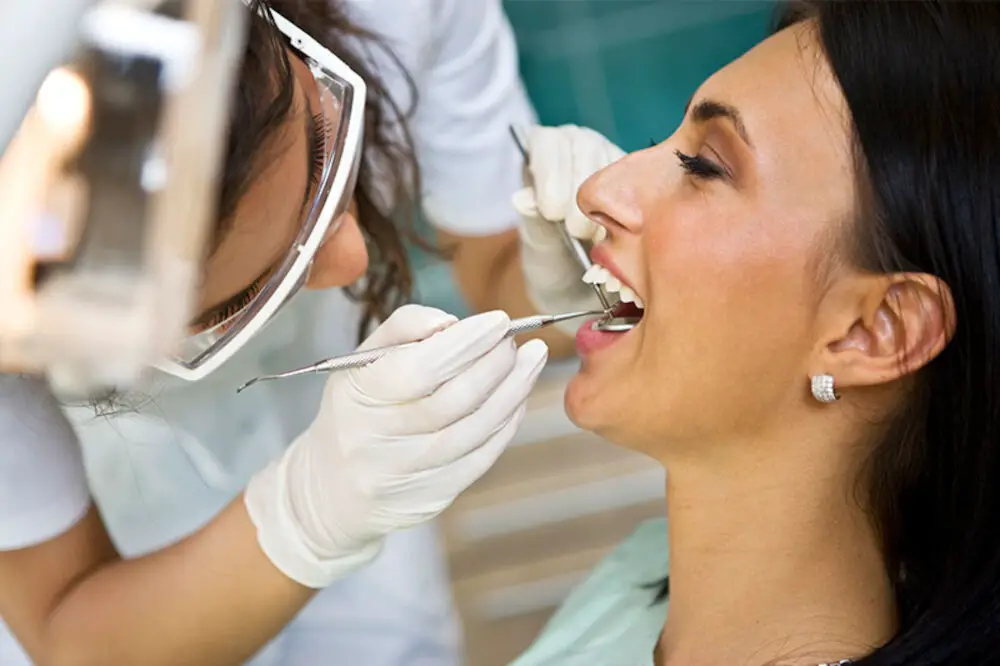
Taking care of your teeth is important for more than just a dazzling smile. Regular teeth cleaning appointments with a dentist are crucial for maintaining good oral health. Not only do they help prevent tooth decay and gum disease, but they can also catch potential issues before they become bigger problems. But how often should you schedule these appointments? Different factors can impact the frequency, so it’s essential to understand the benefits of regular teeth cleaning and how often you should be visiting your dentist. Regular teeth cleaning can help prevent cavities, tartar buildup, and gum disease. When you visit a dental professional, they can remove any plaque and tartar buildup that might have formed since your last visit. This is important because plaque and tartar can lead to tooth decay and gum disease, which, if left untreated, can result in tooth loss. Additionally, a dental cleaning can provide a deep clean that you cannot achieve through regular brushing and flossing. By scheduling regular teeth cleaning appointments, you can help prevent these issues and maintain good oral health.
Regular teeth cleaning is crucial for maintaining good oral hygiene and overall health. Brushing and flossing alone cannot effectively remove all the plaque and tartar buildup that can lead to tooth decay, gum disease, and even tooth loss. Professional teeth cleaning appointments, typically recommended every six months, provide a deep cleaning that removes stubborn plaque and tartar, checks for any oral health issues, and prevents future problems. Additionally, regular teeth cleaning can improve your overall health, as studies have linked poor oral health to heart disease, stroke, and other systemic diseases. Therefore, scheduling regular teeth cleaning appointments is a crucial part of maintaining a healthy and happy smile.
The Benefits of Regular Teeth Cleaning
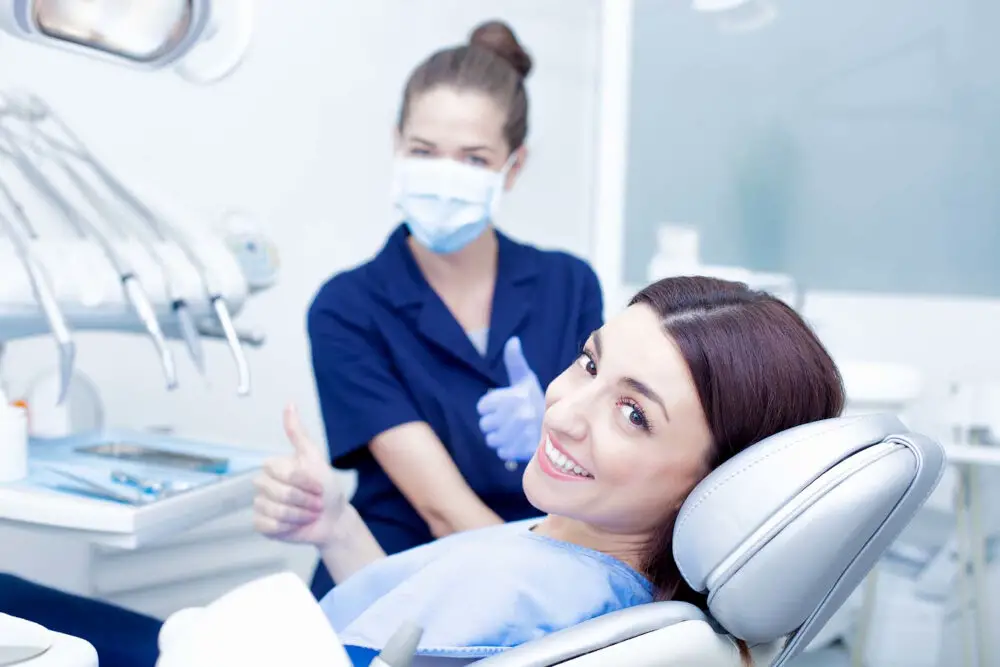
Regular teeth cleaning is an essential aspect of maintaining good oral hygiene. It involves removing plaque and tartar build-up from the teeth, preventing gum disease and tooth decay. Besides promoting healthy teeth and gums, regular teeth cleaning offers several other benefits. For starters, it helps to maintain fresh breath, which is crucial for interpersonal relationships. When left uncleaned, food particles trapped in between teeth and gums can cause bad breath, which can be a turn-off. Regular teeth cleaning helps to remove these particles, leaving the mouth feeling fresh and clean. Another benefit of regular teeth cleaning is that it helps to prevent serious health problems. Poor oral hygiene can lead to gum disease, which has been linked to numerous health conditions, including heart disease, diabetes, and stroke. By keeping your teeth and gums clean, you significantly reduce the risk of these and other health problems. Moreover, regular teeth cleaning can help detect dental problems early, allowing for prompt treatment. This can save you both time and money in the long run, as untreated dental problems can be expensive and time-consuming to fix. Overall, regular teeth cleaning is critical to maintaining good oral and overall health and should be a part of everyone’s oral hygiene routine.
Prevention is always better than cure, and this holds true when it comes to tooth decay and gum disease. To maintain good oral health, it is essential to follow a regular cleaning routine and schedule dental appointments at least twice a year. Brushing twice a day with a fluoride toothpaste, flossing daily, and using mouthwash can help remove plaque and bacteria, preventing tooth decay and gum disease. Eating a balanced diet and avoiding sugary snacks and drinks can also contribute to healthy teeth and gums. Regular dental cleanings and check-ups can help identify any issues early on and prevent them from developing into more serious problems. By taking care of your oral health, you can enjoy a brighter smile, fresher breath, and a healthier body overall.
Regular teeth cleaning is essential to maintain good oral hygiene and prevent dental problems. One of the main reasons for dental issues is the accumulation of plaque and tartar on teeth. Plaque is a sticky film of bacteria that forms on teeth and gums, leading to tooth decay and gum disease, while tartar is a hardened form of plaque that can only be removed by a professional dental cleaning. During a dental cleaning, a dental hygienist uses special instruments to remove plaque and tartar buildup from teeth, providing a deep clean that cannot be achieved through regular brushing and flossing at home. By scheduling regular teeth cleaning appointments, you can ensure that your teeth and gums stay healthy and prevent the need for more extensive dental procedures in the future.
Maintaining fresh breath and having white teeth are two of the most desirable outcomes of regular teeth cleaning. When plaque and tartar build up on teeth, they can contribute to bad breath by harboring bacteria that produce foul odors. Regular cleanings help remove these deposits, reducing the likelihood of halitosis. Additionally, cleanings can remove surface stains that dull the appearance of teeth, making them appear yellow or gray. This can contribute to a less attractive smile overall. By scheduling regular teeth cleaning appointments with your dentist, you can help keep your breath fresh and your teeth looking their best.
Regular teeth cleaning appointments are essential to maintaining good oral health. In addition to removing plaque and tartar buildup, these appointments provide an opportunity for dental professionals to detect any potential dental problems. These problems can range from minor issues such as cavities to more serious concerns like gum disease or oral cancer. Early detection is key in preventing these issues from worsening and causing more significant damage. By attending regular teeth cleaning appointments, individuals can ensure that any dental problems are caught early on, allowing for prompt treatment and intervention.
How Often Should You Schedule Your Appointments?
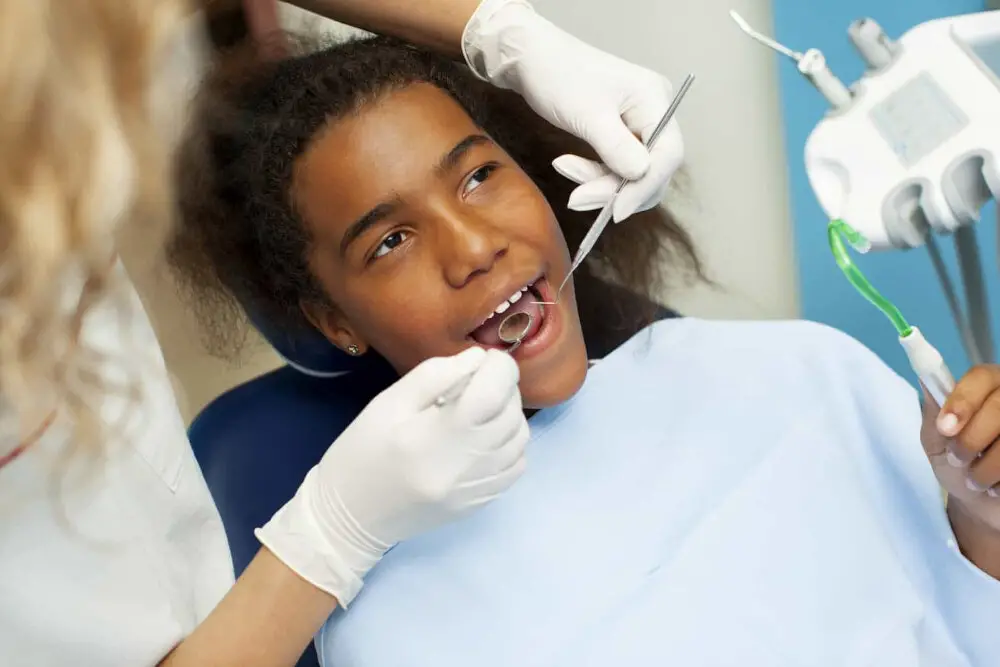
Regular teeth cleaning is essential for maintaining good oral health. It is recommended that individuals visit their dentist at least twice a year for routine checkups and cleanings. However, the frequency of dental visits may vary depending on an individual’s dental health needs. Those with more complex dental issues may require more frequent visits to maintain their oral health. On the other hand, individuals with excellent oral health may only need to visit their dentist once a year. Your dentist will be able to recommend a personalized dental checkup and cleaning schedule based on your specific needs. It is important to prioritize regular teeth cleaning appointments to prevent dental problems from developing or worsening. Neglecting dental appointments can lead to dental problems such as cavities, gum disease, and even tooth loss. Regular checkups and cleanings not only help prevent dental problems but also allow for early detection of any issues that may be present. Early detection can lead to more successful treatment and a healthier mouth. So, be sure to schedule your appointments according to your dentist’s recommendations to keep your smile healthy and bright.
Dental professionals often recommend that individuals schedule regular teeth cleaning appointments to maintain optimal oral health. These appointments typically involve a thorough cleaning of the teeth, gums, and mouth, as well as an examination to identify any potential issues. The frequency of these appointments may vary depending on an individual’s specific needs, but it is generally recommended that they be scheduled every six months. Regular teeth cleaning appointments can help to prevent the buildup of plaque and tartar, which can lead to tooth decay and gum disease. Additionally, dental professionals can provide valuable guidance on proper oral care techniques and identify any potential issues before they become more serious. By making dental appointments a regular part of your healthcare routine, you can help ensure that your teeth and gums remain healthy and strong for years to come.
The frequency of dental appointments can be influenced by various factors such as age, oral health condition, personal habits, and lifestyle. Younger individuals tend to have healthier teeth and gums, and therefore may require fewer appointments than older individuals who may have more dental issues. Patients with good oral hygiene habits and a balanced diet may also require fewer appointments compared to those who smoke, consume sugary foods and drinks, or have poor oral hygiene habits. Additionally, patients with pre-existing dental conditions such as periodontal disease or tooth decay may require more frequent appointments to maintain their oral health. Ultimately, the frequency of appointments should be determined by the individual’s unique oral health needs and the recommendations of their dental healthcare provider.
Individualized treatment plans are of paramount importance when it comes to dental care. No two patients are the same, which means that their dental needs and requirements will differ. A customized treatment plan ensures that the patient receives the most appropriate and effective care possible. Factors such as age, medical history, lifestyle habits, and oral health condition are taken into consideration when devising a personalized treatment plan. This approach helps to optimize treatment outcomes, minimize the risk of complications, and ensure that the patient receives the best possible care for their unique needs. By working closely with their dentist to develop an individualized treatment plan, patients can enjoy healthier teeth and gums, a more attractive smile, and improved overall health and wellbeing.
What Happens During a Teeth Cleaning Appointment?
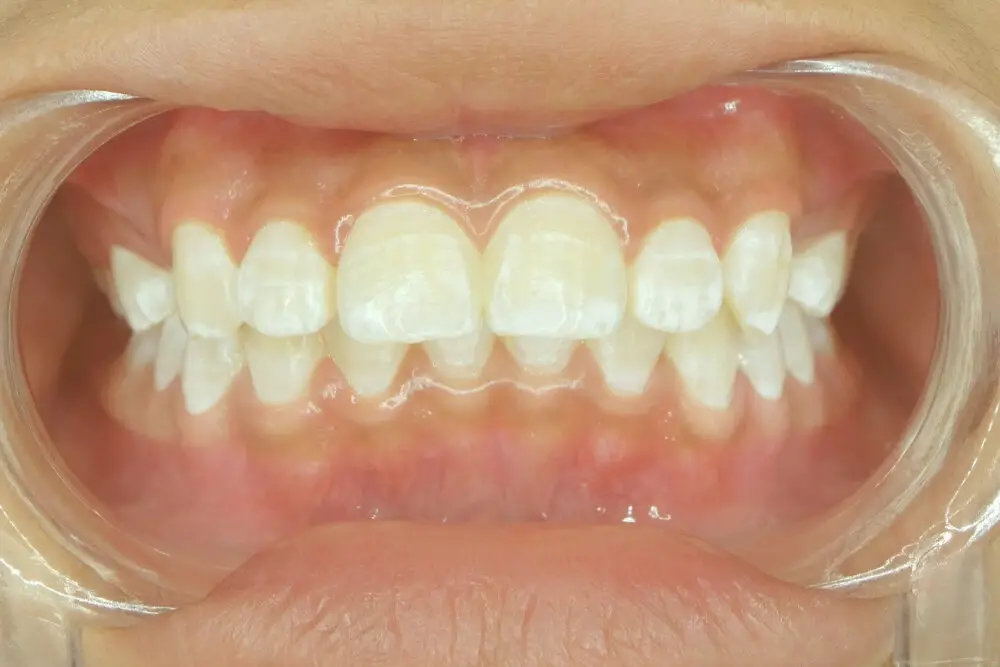
During a teeth cleaning appointment, a dental hygienist or dentist will examine your teeth, gums, and mouth for any signs of issues such as cavities, gum disease, or oral cancer. They will use special tools such as a mirror, scaler, and probe to clean your teeth, remove any plaque or tartar buildup, and polish your teeth to remove any surface stains. They may also take X-rays to check for any hidden issues or to monitor the progress of any ongoing treatments. This process may take anywhere from 30 minutes to an hour, depending on the state of your oral health and the level of cleaning required. Regular teeth cleaning appointments are essential for maintaining good oral health and preventing more serious issues from developing. It is recommended that you schedule a teeth cleaning appointment at least once every six months, or more frequently if you have gum disease or other conditions that require ongoing care. During your appointment, your dental professional may also provide guidance on home care practices such as brushing and flossing, and recommend any additional treatments or procedures that may be necessary to address any issues that are identified. By making regular teeth cleaning a part of your oral care routine, you can enjoy a healthy, beautiful smile for years to come.
An examination of teeth and gums is an essential aspect of regular dental check-ups. During the examination, the dentist will inspect the teeth for any signs of decay, cavities, or damage. They will also check the gums for signs of inflammation or bleeding, which could indicate gum disease. The dentist may take x-rays to get a closer look at the teeth and jawbone. This examination is crucial in identifying any potential dental issues before they worsen and require more extensive, costly treatment. By scheduling regular dental appointments, you can ensure that your teeth and gums are in optimal health, and any issues can be addressed promptly.
Plaque and tartar are two common dental problems that can cause serious damage to your teeth and gums if left untreated. Plaque is a sticky film of bacteria that forms on the teeth, which can lead to tooth decay and gum disease. Tartar is a hardened form of plaque that can only be removed by a professional dental cleaning. Regular teeth cleaning appointments are essential to remove plaque and tartar buildup, and prevent further damage to your teeth and gums. Your dentist can also provide tips and advice on how to maintain good oral hygiene at home, such as brushing and flossing techniques. By scheduling regular dental appointments, you can keep your teeth and gums healthy and prevent serious dental problems in the future.
Polishing of teeth is a crucial step in maintaining good oral hygiene. This procedure involves removing the stains and plaque that can accumulate on the surface of your teeth over time. During a polishing, your dental hygienist will use a special tool to gently scrub away any buildup, leaving your teeth feeling smooth and clean. Not only does this process enhance the appearance of your smile, but it can also help to prevent cavities and gum disease. It is recommended to schedule teeth cleaning appointments every six months to ensure that your teeth stay healthy and beautiful for years to come.
Oral hygiene education plays a crucial role in promoting good dental health and preventing dental problems. Regular brushing and flossing are essential for maintaining healthy teeth and gums, but it’s also important to understand the proper techniques for effective cleaning. Oral hygiene education can also help to raise awareness about the importance of regular dental checkups and professional teeth cleaning. By learning more about proper dental care, individuals can take an active role in protecting their oral health and preventing costly and painful dental problems down the line. Therefore, it is crucial to prioritize oral hygiene education and make it an important aspect of overall health and wellness.
Tips for Maintaining Oral Health Between Appointments
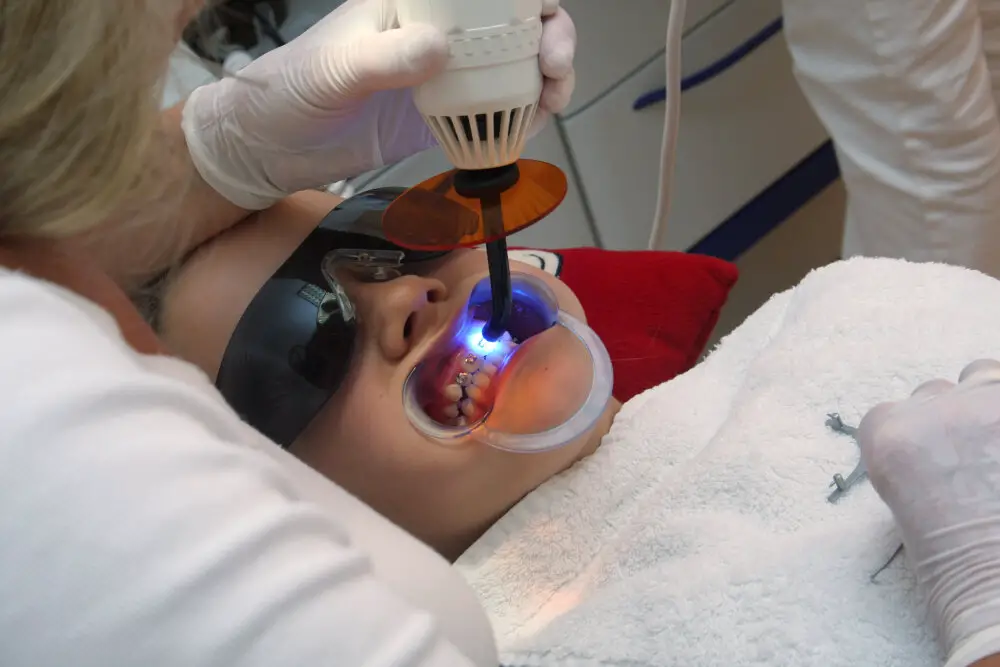
Maintaining good oral hygiene is essential for healthy teeth and gums. While visiting your dentist for regular check-ups and cleanings is crucial, you can also take steps to keep your mouth clean and healthy between appointments. Firstly, brush your teeth twice a day with fluoride toothpaste. Brush for at least two minutes, making sure to reach all the surfaces of your teeth, including the backs and sides. Consider using a toothbrush with soft bristles to avoid damaging your tooth enamel and gums. Don’t forget to replace your toothbrush every three to four months or when the bristles start to fray. Secondly, floss daily to remove food particles and plaque from between your teeth and along the gumline. If you find traditional flossing difficult, consider using a water flosser. This device uses a stream of water to clean between teeth and gums, making it easier and more comfortable for some people. Additionally, using an antiseptic mouthwash can help kill bacteria in your mouth that cause bad breath and gum disease. Remember to swish the mouthwash around in your mouth for at least 30 seconds before spitting it out. By incorporating these habits into your daily routine, you can maintain optimal oral health between dental appointments, and your dentist will be proud of your efforts. In conclusion, it’s essential to prioritize oral health to prevent tooth decay, gum disease, and other dental problems. Regular dental check-ups and cleanings are essential, but it’s also crucial to maintain good oral hygiene at home between appointments. Brushing twice daily with fluoride toothpaste, flossing, and using mouthwash are all effective ways to keep your mouth clean and healthy. By following these tips, you can maintain healthy teeth and gums, and your dentist will be impressed with your commitment to oral hygiene. Remember, a healthy smile is a happy smile!
Brushing and flossing techniques are fundamental to maintaining good oral hygiene. To brush properly, one should use a soft-bristled toothbrush and fluoride toothpaste, and brush in circular motions for two minutes, making sure to reach all areas of the mouth, including the back teeth and gum line. Flossing should be done at least once a day, using about 18 inches of floss and gently sliding it between the teeth, curving it around each tooth in a C shape, and making sure to clean the gum line. Brushing and flossing help remove plaque and food particles that can lead to tooth decay and gum disease. By making these habits a part of your daily routine, you can enjoy the benefits of a healthy smile.
Mouthwash is an excellent addition to regular teeth cleaning, as it helps to kill bacteria, freshen breath, and prevent cavities. When choosing a mouthwash, it is essential to look for one that contains fluoride, which strengthens the teeth and prevents decay. Additionally, individuals with sensitive teeth may benefit from using a mouthwash that is alcohol-free, as alcohol can cause irritation and discomfort. It is recommended to use mouthwash twice a day after brushing and flossing, but it is crucial to keep in mind that mouthwash should not replace brushing and flossing as the primary means of oral hygiene. Regular visits to the dentist can also help to identify any issues and ensure that your teeth and gums remain healthy.
Dietary considerations play a crucial role in maintaining oral health. Consuming a balanced diet rich in vitamins and minerals is not only beneficial for overall health but also for healthy teeth and gums. Foods high in calcium such as milk, cheese, and yogurt promote strong teeth and bones. Fruits and vegetables that are high in fiber help to stimulate saliva production, which helps to neutralize acid in the mouth and wash away food particles. On the other hand, consuming sugary and acidic foods and beverages can lead to tooth decay and erosion, which can eventually result in cavities and gum disease. Therefore, it is essential to maintain a healthy and balanced diet and limit the intake of sugary and acidic foods and beverages to prevent oral health problems.
Lifestyle habits can have a significant impact on oral health. Poor diet choices with high sugar and acid content can lead to tooth decay and erosion. Smoking and using tobacco products can stain teeth, cause bad breath, and increase the risk of gum disease and oral cancer. Habitual teeth grinding or clenching can wear down teeth and cause jaw pain. Neglecting to brush and floss regularly can allow plaque and bacteria to build up, leading to cavities and gum disease. Drinking alcohol excessively or using drugs can also have negative effects on oral health. It is important to prioritize healthy lifestyle choices and maintain good oral hygiene practices for optimal oral health.
Regular teeth cleaning is essential for maintaining good oral hygiene. It helps to prevent cavities, gingivitis, bad breath, and gum disease. Regular cleaning removes plaque and tartar buildup, which can lead to tooth decay and gum disease if left untreated. Additionally, it helps to improve the appearance of teeth by removing stains and discoloration. It is recommended to schedule teeth cleaning appointments every six months to ensure that teeth and gums remain healthy. Neglecting to schedule regular cleaning appointments can lead to more serious dental issues, which can be costly and painful to treat. Therefore, it is important to prioritize regular teeth cleaning as part of one’s overall health and wellness routine.
Scheduling appointments based on individual needs is crucial in maintaining good oral health. Regular teeth cleaning is essential in preventing gum diseases, cavities, and other dental issues. However, the frequency of teeth cleaning appointments varies based on individual needs. Factors such as age, oral health condition, and lifestyle habits all play a role in determining how often one should schedule a teeth cleaning appointment. Therefore, it is important to consult with a dental professional to determine the appropriate frequency for your teeth cleaning appointments. By doing so, you can ensure that your oral health is properly maintained, and any potential issues are addressed promptly, leading to a healthier and brighter smile.
Prioritizing oral health is essential for overall wellbeing. Regular teeth cleaning can prevent various dental issues, including tooth decay, gum disease, and bad breath. Neglecting oral hygiene can lead to severe health complications, such as heart disease, diabetes, and respiratory infections. It is imperative to schedule dental appointments every six months to ensure that your teeth and gums are healthy. Your dentist can identify any potential issues and provide preventive care to maintain your oral health. Remember, a healthy mouth not only improves your physical health but also boosts your confidence, as it allows you to smile without hesitation. So, make sure to prioritize your oral health for a happier, healthier life.
Conclusion
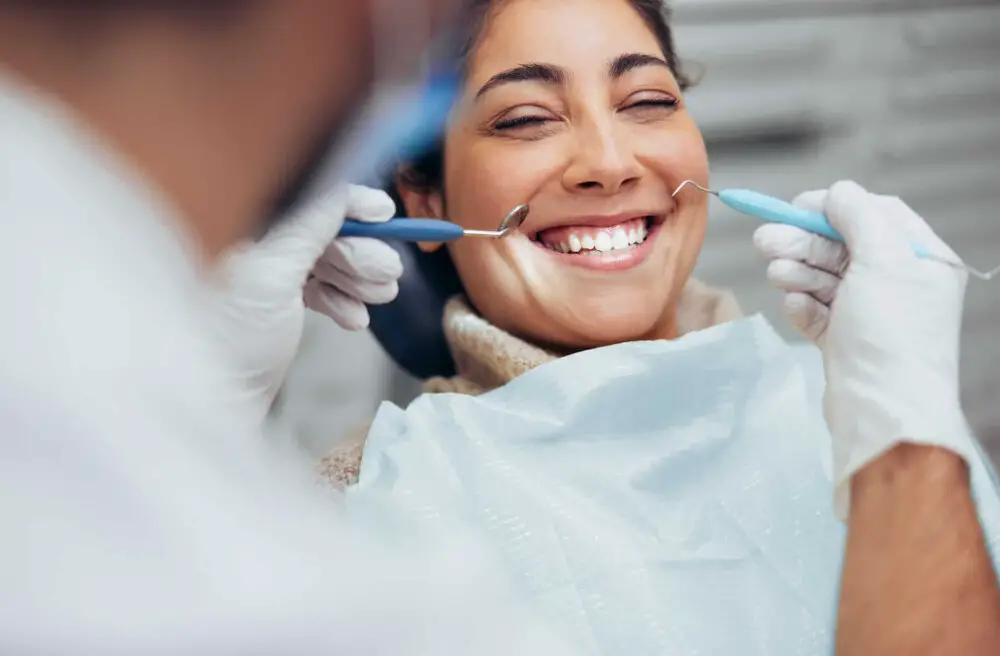
In conclusion, regular teeth cleaning is essential for maintaining good oral hygiene and preventing dental problems. The benefits of scheduling appointments for teeth cleaning include fresh breath, a brighter smile, reduced risk of gum disease, and early detection of dental issues. While it is recommended to schedule teeth cleaning appointments every six months, the actual frequency may vary depending on individual dental needs and habits. It is important to work with a dental professional to determine the ideal schedule for your teeth cleaning appointments. By prioritizing regular teeth cleaning in your oral care routine, you can enjoy a healthier mouth and a more confident smile.
